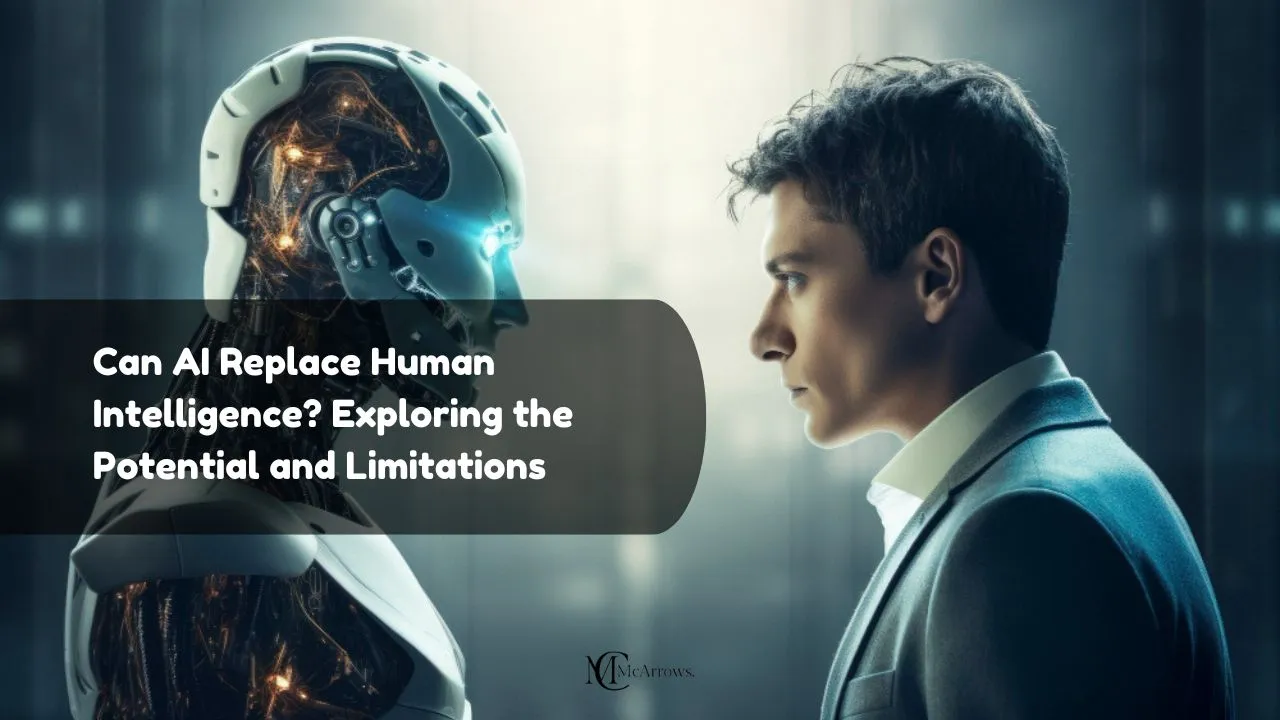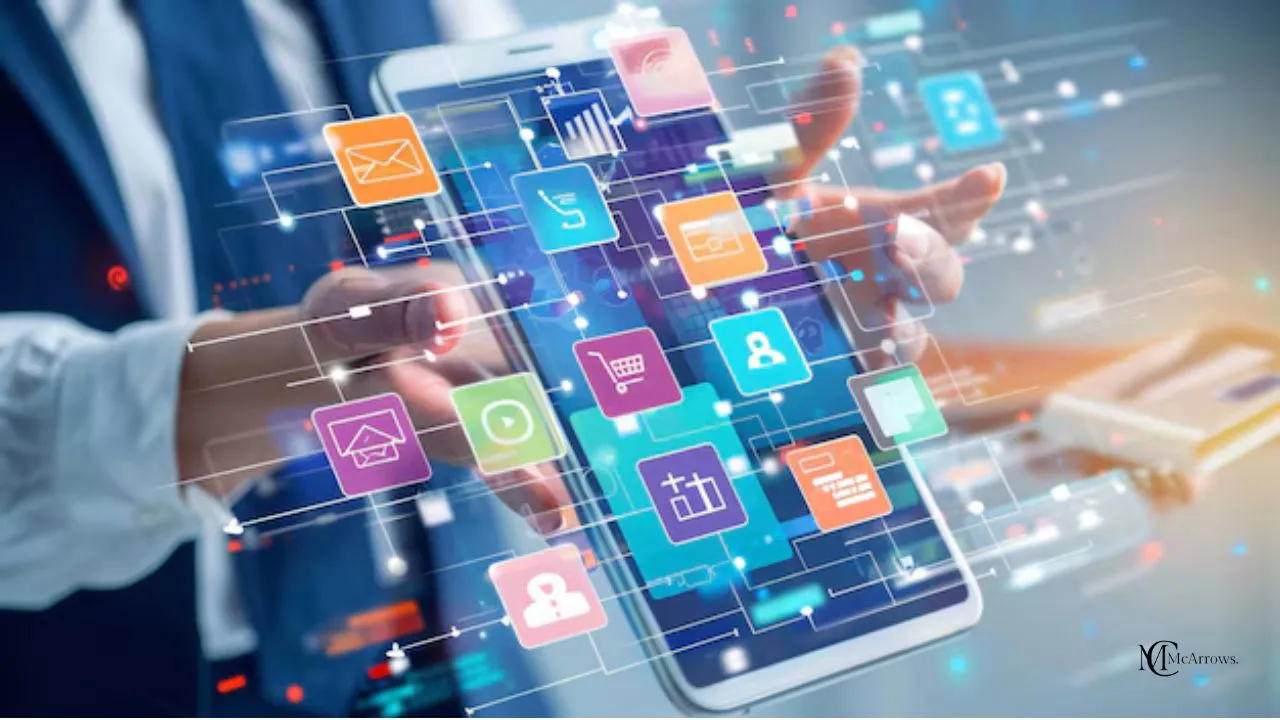Artificial Intelligence (AI) has made remarkable strides in recent years, transforming industries and reshaping our daily lives. But can AI truly replace human intelligence? This question sparks a lively debate, touching on various aspects of what makes us uniquely human and the capabilities of AI. In this article, we’ll explore the potential and limitations of AI in replacing human intelligence.
Table of Contents
Understanding AI
Artificial Intelligence is a branch of computer science that aims to create machines capable of performing tasks that typically require human intelligence. This includes tasks like learning, reasoning, problem-solving, perception, and language understanding. AI systems are designed to mimic cognitive functions and automate processes, making them invaluable tools in various fields.
The Evolution of AI
The journey of AI began in the mid-20th century with the advent of computing. Over the decades, AI has evolved from simple machine learning algorithms to complex neural networks and deep learning models. Today, AI can process vast amounts of data, recognize patterns, and make decisions at speeds unimaginable a few decades ago.
AI in Everyday Life
AI has seamlessly integrated into our daily routines. From virtual assistants like Siri and Alexa to recommendation algorithms on Netflix and Amazon, AI enhances our convenience and productivity. In healthcare, AI aids in diagnosing diseases and developing treatment plans. In finance, it helps detect fraudulent activities and optimize investments. AI’s presence is ubiquitous and growing.
Human Intelligence vs. AI
Human intelligence is a multifaceted construct encompassing emotional, social, and creative dimensions. Unlike AI, which excels in processing and analyzing data, human intelligence is characterized by its ability to understand complex emotions, empathize, and think creatively. These aspects highlight the distinct differences between human intelligence and AI.
Strengths of AI
Efficiency and Accuracy: AI can process large volumes of data quickly and with high accuracy, reducing human error. 24/7 Availability: Unlike humans, AI systems can operate continuously without fatigue. Pattern Recognition: AI excels at identifying patterns and trends in data, making it invaluable in fields like finance, healthcare, and marketing. Automation of Repetitive Tasks: AI can handle mundane and repetitive tasks, freeing up human workers for more complex and creative work.
Limitations of AI
Despite its strengths, AI has notable limitations: Lack of Emotional Understanding: AI cannot truly understand or replicate human emotions and empathy. Creativity Deficit: AI can generate ideas based on existing data but struggles with genuine creativity and innovation. Ethical Concerns: AI decisions can be biased based on the data it was trained on, raising ethical and fairness issues. Dependence on Data: AI’s effectiveness is limited by the quality and quantity of data it receives.
Emotional Intelligence
One of the key areas where AI falls short is emotional intelligence. Humans can understand and respond to emotions in nuanced ways, building relationships and fostering empathy. While AI can simulate basic emotional responses, it lacks the depth and authenticity of human emotional intelligence, which is crucial in fields like counseling, leadership, and customer service.
Creativity and Innovation
Creativity involves the ability to think outside the box, generate original ideas, and innovate. While AI can assist in creative processes, such as generating music or art based on patterns, it does not possess the inherent creativity of the human mind. Human creativity stems from unique experiences, emotions, and imagination, aspects that AI cannot replicate.
Ethical Considerations
The rise of AI brings forth significant ethical considerations. Issues like data privacy, job displacement, and decision-making biases require careful deliberation. Ensuring that AI systems are fair, transparent, and accountable is critical to mitigating negative impacts on society.
The Future of AI and Human Roles
Looking ahead, the future of AI lies in collaboration with human intelligence rather than replacement. AI can augment human capabilities, handling data-intensive tasks while humans focus on strategic, emotional, and creative endeavors. This synergy can drive innovation and efficiency across various sectors.
How Can McArrows Help You with Efficient and Robust AI Projects?
McArrows is a leading expert in the AI field, dedicated to helping businesses leverage the power of artificial intelligence effectively and robustly. Here’s how McArrows can assist you:
Customized AI Solutions: McArrows offers tailored AI solutions that fit the specific needs of your business, ensuring that the AI applications are aligned with your goals and operational requirements.
Expert Team: With a team of seasoned AI professionals, McArrows provides the expertise needed to design, develop, and implement sophisticated AI systems that deliver real-world results.
Scalable Projects: McArrows focuses on building scalable AI projects that can grow with your business, allowing for adjustments and expansions as needed without compromising performance.
Data Management: Effective AI relies on quality data. McArrows helps in managing and preparing your data, ensuring it is clean, relevant, and ready for AI integration.
Continuous Support and Maintenance: Beyond development, McArrows offers ongoing support and maintenance to ensure your AI systems run smoothly and adapt to any new challenges or changes in your business environment.
Ethical AI Practices: McArrows emphasizes ethical AI practices, ensuring that the AI solutions are fair, transparent, and comply with all relevant regulations and standards.
By partnering with McArrows, businesses can harness the full potential of AI, driving efficiency, innovation, and growth in a sustainable and responsible manner.
Conclusion
While AI has the potential to revolutionize many aspects of our lives, it cannot replace human intelligence entirely. The unique qualities of human intelligence—emotional depth, creativity, and ethical reasoning—are beyond the reach of current AI technologies. As we move forward, the goal should be to harness the strengths of both AI and human intelligence, creating a future where they complement each other to achieve greater heights.
FAQs
1. Can AI think like humans?
AI can simulate certain aspects of human thinking, such as pattern recognition and decision-making, but it lacks the emotional and creative depth of human intelligence.
2. Will AI take over all human jobs?
While AI will automate some jobs, it is more likely to create new roles and opportunities, requiring humans to focus on tasks that involve creativity, empathy, and complex decision-making.
3. How can AI and humans work together?
AI can handle data-intensive and repetitive tasks, allowing humans to focus on strategic, creative, and interpersonal activities. This collaboration can enhance productivity and innovation.
4. What are the ethical concerns with AI?
Ethical concerns include data privacy, potential biases in AI decision-making, and the impact on employment. Ensuring AI systems are fair and transparent is crucial.
5. Is AI capable of true creativity?
AI can assist in creative processes by generating ideas based on existing data, but it lacks the inherent creativity that comes from human experiences, emotions, and imagination.

CEO, McArrows
Leverages over seven years in tech to propel the company forward. An alumnus of Purdue and Amity, his expertise spans IT, healthcare, aviation, and more. Skilled in leading iOS and backend development teams, he drives McArrows’ technological advancements across diverse industries.








